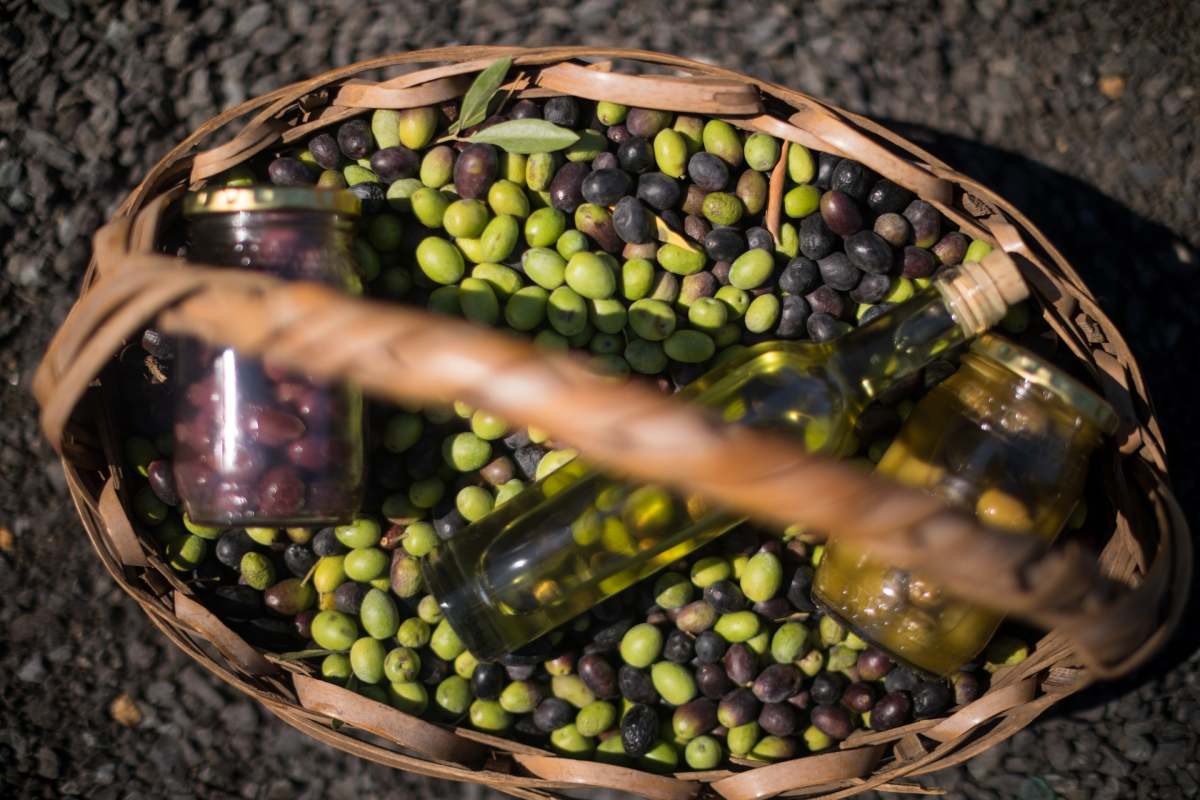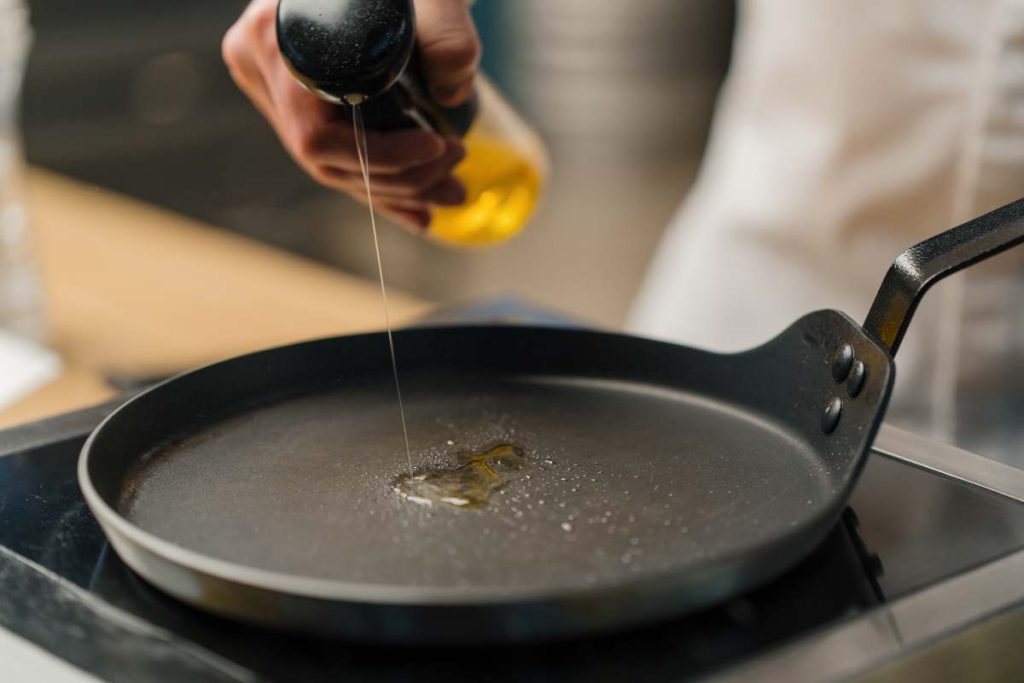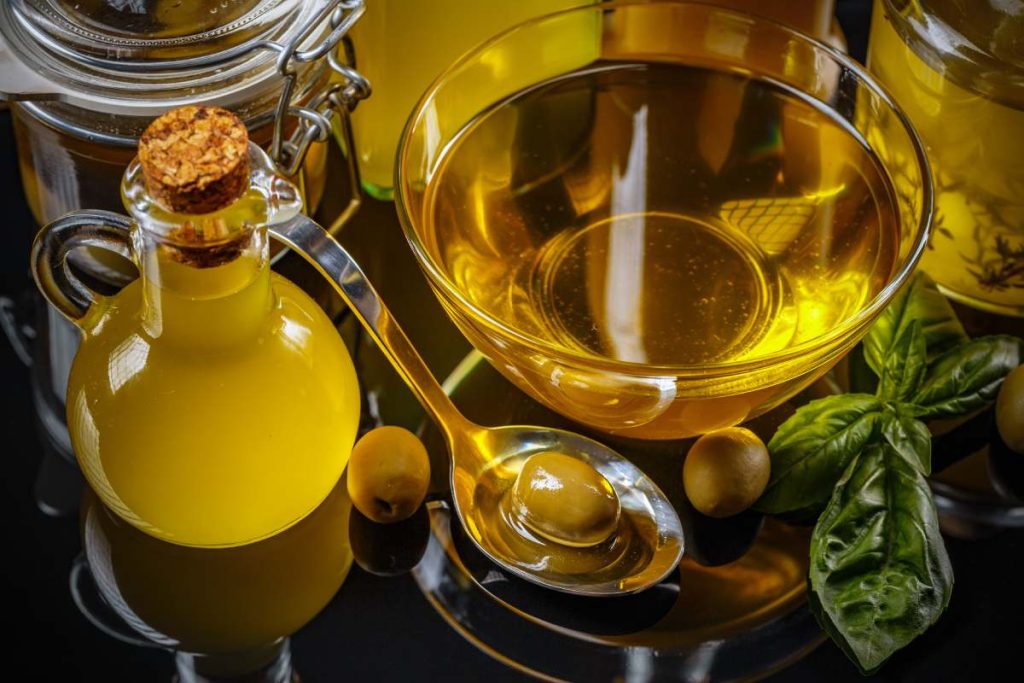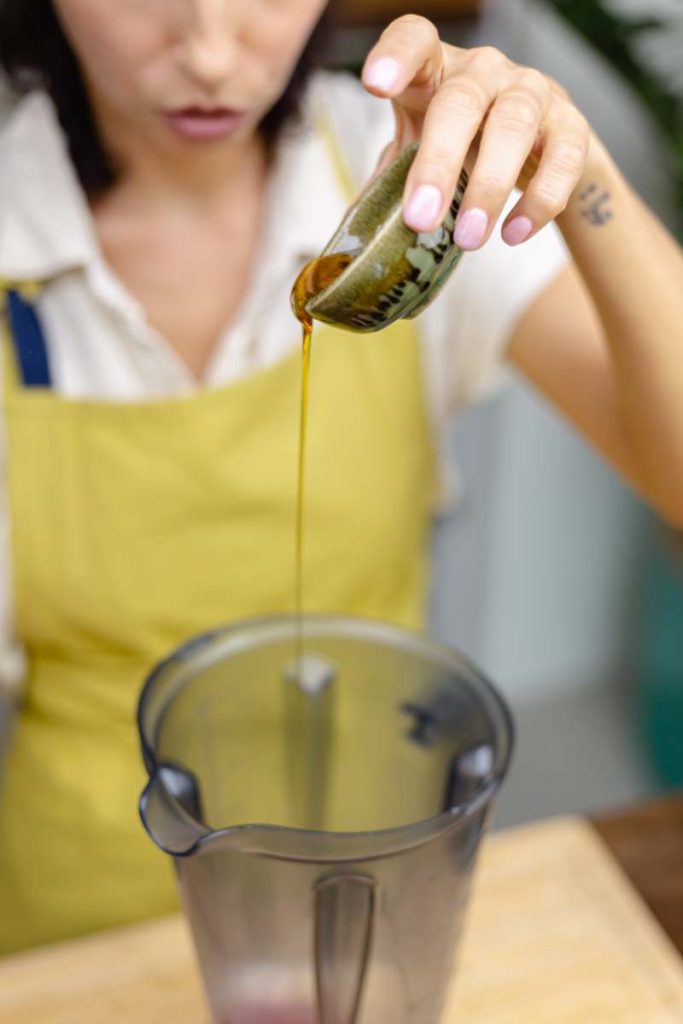Why olive oil is good for your health? Is olive oil still healthy when heated?
Health, LifeStyle Jun 19, 2024

If olives are considered fruits in botanical terms, does that make olive oil fruit juice? While we don’t drink olive oil like apple or orange juice, it has been valued for centuries for various purposes. It’s commonly used in cooking, as a skin moisturizer, to nourish hair, and even as a remedy for sore throats and wounds.
You might assume that the fruits that came out of those olive trees are less healthy than your morning fruit juice. However, regular consumption of olive oil has been linked to numerous health benefits.
Why olive oil is good for your health? What makes it different from normal cooking oil?
Olive oil is renowned for its health benefits primarily due to its unique composition and the way it is processed compared to regular cooking oils. Here’s what makes olive oil stand out:
- Healthy Fats: Olive oil is predominantly composed of monounsaturated fats, particularly oleic acid. These fats are considered healthy because they can help lower LDL (bad) cholesterol levels while maintaining or even increasing HDL (good) cholesterol levels. This can potentially reduce the risk of heart disease and stroke.
- Antioxidants: Extra virgin olive oil, in particular, is rich in antioxidants, such as polyphenols and vitamin E. These compounds help combat oxidative stress and inflammation in the body, which are underlying factors in many chronic diseases, including cardiovascular diseases and certain cancers.
- Anti-inflammatory Properties: The polyphenols in olive oil have been found to have potent anti-inflammatory effects. Chronic inflammation is linked to numerous health problems, so reducing inflammation can support overall health and well-being.
- Rich Nutrient Profile: Olive oil also contains other beneficial nutrients, such as vitamin K and various phenolic compounds, which contribute to its health-promoting properties.
- Processing Methods: Extra virgin olive oil is extracted using natural methods, such as cold pressing, which helps retain more of the olive’s natural antioxidants and nutrients compared to refined oils. Regular cooking oils, on the other hand, often undergo extensive processing, including refining, bleaching, and deodorizing, which can strip away nutrients and beneficial compounds.
- Flavour and Culinary Versatility: Olive oil adds a distinct flavour to dishes, enhancing their taste without the need for excessive amounts of salt or unhealthy flavour enhancers. Its versatility in cooking, from light sautéing to salad dressings and drizzling over finished dishes, makes it a preferred choice in Mediterranean cuisine.
In summary, what sets olive oil apart from regular cooking oils is its high content of monounsaturated fats, antioxidants, and anti-inflammatory properties. These components work synergistically to provide a range of health benefits, especially when incorporated into a balanced diet. Choosing extra virgin olive oil ensures you get the maximum nutritional value and flavour, making it a healthier option for cooking and culinary use.

Is olive oil still healthy when heated?
Yes, olive oil remains generally healthy when heated, but there are considerations to keep in mind to preserve its beneficial properties.
- Smoke Point: Olive oil has a smoke point, which is the temperature at which it starts to smoke and break down. Extra virgin olive oil typically has a lower smoke point (around 320-375°F or 160-190°C) compared to refined olive oil (which can range from 390-470°F or 199-243°C). Heating olive oil beyond its smoke point can lead to the formation of harmful compounds and a loss of its nutritional benefits.
- Types of Cooking: Olive oil is suitable for light sautéing, baking, and low to medium-heat cooking. It can be used for frying at moderate temperatures, but it’s generally not recommended for deep frying or high-heat cooking methods where the oil is heated for an extended period.
- Preservation of Nutrients: Heating olive oil too high can degrade its antioxidants and beneficial fats. To minimize nutrient loss, it’s best to use moderate heat and avoid overheating or prolonged exposure to high temperatures.
- Choosing the Right Olive Oil: Extra virgin olive oil, with its higher content of antioxidants and polyphenols, is more delicate and flavorful but has a lower smoke point. It’s ideal for drizzling over salads, cooked vegetables, or as a finishing oil on dishes after cooking. For higher heat cooking, such as stir-frying or searing, a refined olive oil with a higher smoke point may be a better choice.
- Cooking Methods: If you’re unsure about the temperature, consider using a combination of olive oil with other cooking oils that have higher smoke points, such as avocado oil or grapeseed oil, for high-heat cooking.
While olive oil retains its health benefits when heated under moderate temperatures, it’s essential to be mindful of its smoke point and cooking method to preserve its nutritional properties. Choosing the right type of olive oil for the cooking method and avoiding overheating can help you enjoy its health benefits while enhancing the flavour of your dishes.

How much is too much olive oil?
The amount of olive oil that can be considered “too much” depends on various factors, including your overall diet, calorie needs, and health goals. While olive oil is generally regarded as healthy, it is calorie-dense, so consuming excessive amounts can lead to weight gain or other health issues if not balanced properly.
Here are some considerations:
- Caloric Density: Olive oil is high in calories, with approximately 120 calories per tablespoon. Consuming large quantities without accounting for these calories can contribute to weight gain, especially if your overall calorie intake exceeds your energy needs.
- Healthy Fat Intake: While monounsaturated fats in olive oil are beneficial, they should be consumed in moderation as part of a balanced diet. Too much fat, even healthy fats, can displace other essential nutrients in your diet.
- Nutrient Balance: Your diet should include a variety of foods to ensure you’re getting all necessary nutrients. Relying too heavily on any single food, including olive oil, may lead to deficiencies in other nutrients.
- Health Conditions: Individuals with specific health conditions, such as gallbladder issues or certain digestive disorders, may need to moderate their fat intake, including olive oil, based on their doctor’s recommendations.
- Quality of Olive Oil: The quality of olive oil matters. Extra virgin olive oil, which retains more antioxidants and beneficial compounds, is preferable to refined olive oil. Opting for high-quality olive oil ensures you’re getting the most nutritional benefits per serving.
In terms of practical advice:
- Moderation is Key: As with any food, including olive oil in moderation as part of a balanced diet is recommended. This typically means using it in reasonable amounts for cooking, dressing salads, or drizzling over dishes.
- Consider Your Dietary Needs: If you’re trying to manage your weight or have specific health concerns, consult with a healthcare professional or registered dietitian to determine the appropriate amount of olive oil for your individual needs.
- Balance with Other Fats: Instead of relying solely on olive oil, consider incorporating other sources of healthy fats such as nuts, seeds, avocados, and fatty fish into your diet for variety and balanced nutrition.
Olive oil may offer health benefits, but consuming it in excess can lead to unintended consequences. Being mindful of portion sizes and integrating it sensibly into your diet ensures you enjoy its nutritional advantages without overdoing it.
Which type of olive oil is best for cooking?
When it comes to cooking with olive oil, the type you choose depends on the cooking method and temperature you’ll be using. Here’s a guide to selecting the best type of olive oil for different cooking purposes:

- Extra Virgin Olive Oil (EVOO):
- Best For: Low to medium-heat cooking, salad dressings, marinades, and drizzling over finished dishes.
- Why: Extra virgin olive oil is the least processed and retains the highest levels of antioxidants and beneficial compounds. Its delicate flavour makes it ideal for enhancing dishes without high-heat cooking that can degrade its flavour and nutrients.
- Virgin Olive Oil:
- Best For: Similar to extra virgin olive oil, virgin olive oil is suitable for low to medium-heat cooking, dressings, and light sautéing.
- Why: Virgin olive oil is also unrefined and retains a good amount of antioxidants and flavour, though slightly less than extra virgin. It can be a more economical choice for everyday cooking.
- Regular Olive Oil (Pure Olive Oil):
- Best For: Medium-heat cooking, such as sautéing, baking, and grilling.
- Why: Regular olive oil is a blend of virgin and refined olive oils. It has a higher smoke point compared to extra virgin and virgin olive oils, making it more suitable for cooking methods that require higher temperatures.
- Light Olive Oil:
- Best For: High-heat cooking methods like frying and deep frying.
- Why: Light olive oil is a highly refined olive oil with a higher smoke point and a more neutral flavour. It’s suitable for cooking at higher temperatures where the flavour of extra virgin or virgin olive oil would be lost.
Tips for Choosing and Using Olive Oil for Cooking:
- Consider Smoke Point: Choose olive oil with an appropriate smoke point for your cooking method. Extra virgin and virgin olive oils are best for low to medium heat, while regular and light olive oils can handle higher temperatures.
- Flavour Preservation: Use extra virgin or virgin olive oil for dishes where the flavour of the oil contributes to the overall taste, such as salad dressings or drizzling over cooked vegetables. Reserve regular or light olive oil for dishes where a more neutral flavour is desired.
- Storage: Store olive oil in a cool, dark place away from heat and light to preserve its freshness and nutrients. Use within a reasonable timeframe after opening to enjoy its full benefits.
In summary, while extra virgin olive oil is prized for its health benefits and flavour, its lower smoke point makes it best suited for low to medium-heat cooking and raw applications. For higher heat cooking, choose regular olive oil or light olive oil, which have higher smoke points and are better able to withstand the heat without compromising taste or nutritional value.